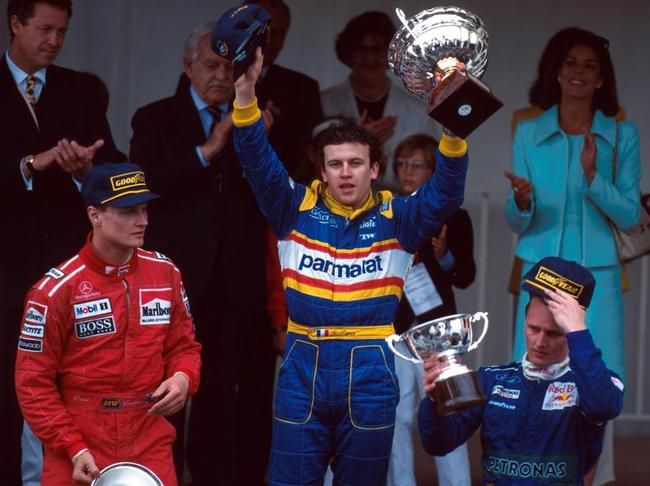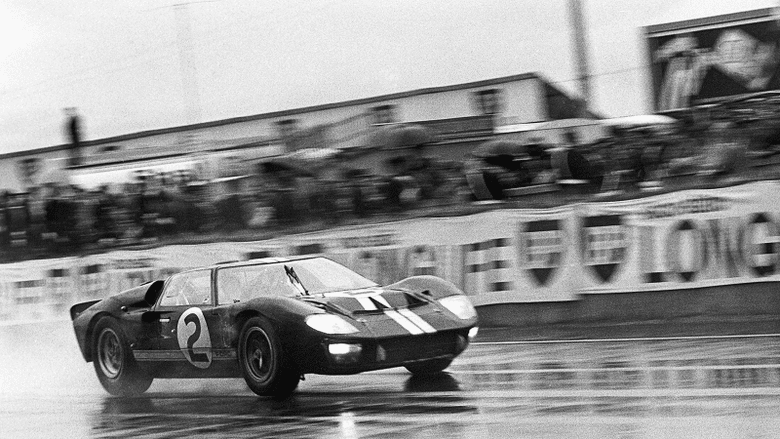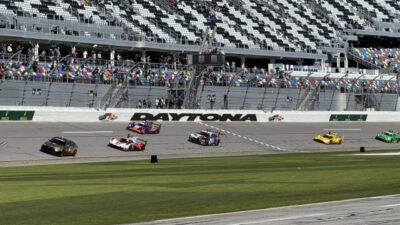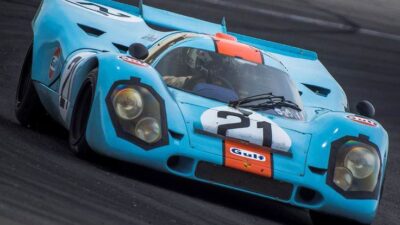Auto racing thrives on predictability, with well-funded teams and star drivers typically dominating the podium. Yet some of the sport’s most memorable moments come when the unexpected happens and lesser-known drivers or teams claim victory against all odds.

The greatest underdog wins in auto racing history prove that determination, skill, and perfect timing can overcome superior equipment and bigger budgets. From Pastor Maldonado’s shocking Spanish Grand Prix victory in 2012 to small NASCAR teams stunning the racing world, these triumphs remind fans why motorsport remains unpredictable.
These victories showcase drivers who refused to accept their underdog status. Whether racing with limited resources or recovering from devastating crashes, they found ways to beat the favorites when it mattered most.
Key Takeaways
- Underdog victories in auto racing occur when drivers overcome superior equipment through skill, strategy, and determination
- The most memorable racing moments often come from unexpected winners rather than dominant champions
- These surprise victories have lasting impacts that inspire future generations of drivers and teams
What Makes an Underdog Win in Auto Racing?

Underdog victories in auto racing happen when drivers or teams with little chance of winning beat the favorites. These wins come from a mix of skill, luck, timing, and sometimes pure determination that catches everyone by surprise.
Defining Underdog Stories in Motorsports
An underdog in racing means a driver or team that most people don’t expect to win. This could be a small team with less money, a rookie driver, or someone using older equipment.
Common Types of Racing Underdogs:
- Small teams with tight budgets
- Drivers in their first few seasons
- Teams using older or less advanced cars
- Drivers coming back from injuries or crashes
Danica Patrick made history when she became the first woman to win an IndyCar race. The odds were against her from the start, but she kept proving doubters wrong.
Sometimes underdogs are drivers who had bad crashes and came back. Alex Zanardi lost both legs in a terrible CART accident but later got back into racing and even won Olympic gold in handcycling.
Pastor Maldonado was never seen as one of the best F1 drivers. But in 2012, he won the Spanish Grand Prix and gave Williams their last victory to date.
Key Factors Behind Unexpected Victories
Weather and Track Conditions play a huge role in underdog wins. Rain or changing conditions can level the playing field between fast and slow cars.
NASCAR underdog victories usually happen for one of two reasons: weather struck at exactly the right time, or the driver and team simply chose to be dominant that day.
Strategy and Timing can make all the difference. Smart pit stops, fuel saving, or taking risks at the right moment often lead to surprise wins.
Technical Advantages sometimes help underdogs. The race outcome depends heavily on the pilot, but teams can bring higher winning potential through car setup and innovations.
Driver Determination matters most. Some drivers simply refuse to give up, even when their equipment isn’t the best.
Jenson Button and Brawn GP shocked everyone in 2009. After Honda left F1, the small team wasn’t expected to do much. But Button won the first race and went on to become world champion.
Impact on Racing Culture
Underdog wins create some of the most memorable moments in racing history. These victories show that anything can happen on race day, which keeps fans excited and engaged.
Fan Connection grows stronger when underdogs win. People love cheering for the little guy who beats the big teams with more money and better equipment.
Inspiration for Teams comes from seeing small operations succeed. New teams and drivers see that they don’t need the biggest budget to win races.
Sebastian Vettel’s 2008 Italian Grand Prix victory with Toro Rosso showed that junior teams could win races. Nobody expected the mid-field team to beat the top drivers.
Media Coverage of underdog wins often gets more attention than expected victories. These stories spread beyond racing fans to mainstream sports coverage.
The racing world celebrates these wins because they prove that talent and determination can overcome money and technology. They remind everyone why racing is unpredictable and exciting.
Legendary Formula One Underdog Triumphs

Formula One has witnessed remarkable victories from unlikely winners throughout its history. From Olivier Panis’s masterful drive through Monaco’s rain-soaked streets to Sebastian Vettel’s breakthrough triumph at Monza, these moments showcase racing at its most unpredictable.
Olivier Panis and the 1996 Monaco Grand Prix
The 1996 Monaco Grand Prix stands as one of Formula One’s greatest underdog victories. Olivier Panis started 14th on the grid for Ligier, a team struggling in the mid-1990s.

Heavy rain transformed Monaco’s already challenging circuit into a treacherous trap. Cars crashed and retired throughout the race as drivers struggled with the wet conditions.
Panis drove with exceptional skill and patience. He avoided the carnage that claimed faster cars ahead of him. His steady approach allowed him to climb through the field as others made mistakes.
Race Statistics:
- Starting position: 14th
- Cars that finished: Only 4 out of 20 starters
- Panis’s career wins: This was his only F1 victory
- Ligier’s drought: First win in 15 years
The Frenchman crossed the finish line to claim his only career victory. It marked Ligier’s first triumph since 1981, ending a painful 15-year winless streak.
Gilles Villeneuve at the 1981 Spanish Grand Prix
Gilles Villeneuve delivered one of Ferrari’s most memorable victories at the 1981 Spanish Grand Prix. The Canadian driver faced fierce competition from faster cars throughout the weekend.
Villeneuve qualified well but knew his Ferrari lacked the outright speed of its rivals. He needed to use every bit of his racing craft to stay competitive during the race.
The Ferrari driver employed brilliant tactical driving to stay ahead. He used his car’s superior handling through corners to compensate for straight-line speed disadvantages. His aggressive defending frustrated faster opponents.
Villeneuve’s victory came through pure driving skill rather than mechanical advantage. He held off multiple challenges from quicker cars to secure the win.
This triumph showcased why Villeneuve became a legend. His ability to extract maximum performance from inferior machinery made him one of F1’s most respected drivers.
Sebastian Vettel’s First Win at Monza
Sebastian Vettel shocked the F1 world with his maiden victory at the 2008 Italian Grand Prix. The 21-year-old German was driving for Toro Rosso, Red Bull’s junior team.
Vettel started from pole position in challenging wet conditions. His qualifying performance had already surprised the paddock, but few expected him to convert it into victory.
The young driver controlled the race from the front. He managed the changing track conditions expertly as the surface dried throughout the afternoon. His tire strategy proved perfect for the evolving circumstances.
Key Factors in Victory:
- Age: Youngest winner at the time (21 years, 73 days)
- Team: Toro Rosso’s first and only win
- Conditions: Wet-to-dry race favored his skills
- Competition: Beat established champions
Vettel became the youngest race winner in F1 history. His victory announced the arrival of a future four-time world champion. The win also gave Toro Rosso their only Grand Prix triumph.
Keke Rosberg’s Breakthrough Victory
Keke Rosberg’s path to F1 success exemplified persistence paying off. The Finnish driver spent years with uncompetitive teams before finding his breakthrough moment.
Rosberg joined Williams in 1982, finally getting a car capable of winning races. His aggressive driving style perfectly matched the team’s philosophy and technical approach.
The Finn’s first victory came through determination and racecraft. He maximized every opportunity that presented itself during races. His consistent point-scoring eventually led to championship success.
Rosberg proved that talent could triumph over early career setbacks. His 1982 world championship came with just one win, showing consistency matters as much as speed.
His success opened doors for future Finnish drivers in F1. Rosberg’s career demonstrated how perseverance and the right opportunity could transform an underdog into a champion.
Iconic Drivers Who Overcame the Odds

Several drivers transformed their careers through unexpected victories and perseverance despite facing major setbacks. These racers proved that talent and determination could overcome seemingly impossible circumstances in Formula 1.
Damon Hill’s 1998 Belgian Grand Prix Victory
Damon Hill’s win at the 1998 Belgian Grand Prix stands as one of Formula 1’s most surprising victories. Racing for the Jordan team, Hill had not won a race since claiming the 1996 World Championship with Williams.
The Jordan team was considered a mid-field competitor at best. Most experts gave Hill little chance of returning to winning form after struggling in previous seasons.
Race conditions played a crucial role in Hill’s triumph. Heavy rain created chaos during the race at Spa-Francorchamps. Many faster cars crashed or faced mechanical problems.
Hill showed his experience and skill in wet conditions. He stayed calm while other drivers made mistakes on the slippery track.
The victory proved Hill still had winning ability despite driving for a smaller team. It became Jordan’s first Formula 1 victory and marked a career highlight for Hill late in his racing years.
Michael Schumacher’s Early Career Surprises
Michael Schumacher shocked the racing world during his early Formula 1 career with Benetton. He joined F1 as a relatively unknown driver from Germany in 1991.
His first victory came at the 1992 Belgian Grand Prix. Schumacher was only 23 years old and driving for Benetton, which was not considered a top team at the time.
Weather conditions again played a part in creating opportunity. Schumacher showed exceptional skill in changing track conditions throughout the race weekend.
The win marked the beginning of Schumacher’s rise to greatness. He would go on to win back-to-back championships with Benetton in 1994 and 1995.
His early success surprised many because German drivers had limited success in Formula 1 before Schumacher. He proved that talent could emerge from unexpected places in motorsport.
Johnny Herbert’s Standout Performances
Johnny Herbert overcame serious injuries to achieve success in Formula 1. During a potential championship-winning year in F3000, Herbert had a horrific crash that caused severe ankle and foot injuries.
The injuries continued to affect Herbert throughout his career. Many doctors suggested he should stop racing completely due to the long-term damage.
Herbert refused to give up on his racing dreams. The following year after his crash, he was racing in Formula 1, not letting his injuries get the better of him.
His persistence paid off with remarkable results:
- Nearly scored a podium on his F1 debut
- Won three Formula 1 Grand Prix during his career
- Competed successfully despite ongoing physical challenges
Herbert went on to win three Grand Prix races during his Formula 1 career. His victories proved that determination could overcome physical limitations in motorsport.
Ferrari and Underdog Stories in Racing

Ferrari has delivered some of racing’s most memorable underdog victories, with drivers overcoming poor car performance through skill and determination. Gilles Villeneuve’s 1981 Spanish Grand Prix win stands as the ultimate example of driver talent triumphing over mechanical disadvantages.
Unexpected Triumphs with Ferrari
Ferrari’s underdog moments often came when the team struggled with uncompetitive cars. Drivers had to rely on pure skill rather than superior machinery.
The 2003 Brazilian Grand Prix victory showcased Ferrari’s fighting spirit during a chaotic wet race. Giancarlo Fisichella secured the win after race officials made a controversial decision about which lap counted for the final results.
Heavy rain created dangerous conditions that eliminated many favorites. The race was stopped early due to safety concerns after Fernando Alonso crashed into a barrier.
Initially, officials awarded the victory to Kimi Raikkonen. However, Eddie Jordan’s legal team proved that Fisichella had been leading on the correct lap when the red flag appeared.
Key factors in Ferrari’s unexpected wins:
- Driver skill overcoming car limitations
- Strategic pit stops during changing conditions
- Capitalizing on competitors’ mistakes
- Weather conditions leveling the playing field
Gilles Villeneuve’s Legacy at Ferrari
Gilles Villeneuve created the most famous Ferrari underdog story at the 1981 Spanish Grand Prix. He drove a historically poor Ferrari to victory through pure driving excellence.
The Ferrari handled poorly and was completely outmatched by competitors. Four superior cars followed Villeneuve throughout the race, yet he maintained his lead.
Villeneuve made a perfect start and moved into second place early. When Alan Jones crashed on lap 14, he inherited the lead and never gave it up.
What made this victory special:
- Clean racing: Villeneuve used no defensive tactics
- Perfect execution: Every lap was flawless
- Raw talent: Driver skill overcame mechanical disadvantages
The Canadian driver’s impeccable track manners impressed fans and competitors alike. He won simply by running each lap cleanly and perfectly, despite driving what many considered an inferior car.
This victory remains one of the greatest demonstrations of individual driving skill in Formula One history.
NASCAR and Other Motorsport Shock Victories

Auto racing history includes stunning upset victories where unknown drivers and small teams defeated motorsports giants. These memorable NASCAR underdog wins and international racing surprises prove that skill and timing can overcome superior resources.
Memorable NASCAR Underdog Wins
Trevor Bayne delivered one of NASCAR’s greatest shocks at the 2011 Daytona 500. At just 20 years old in his second Cup Series start, he drove Wood Brothers Racing to victory. The team hadn’t won since 2001.
Michael McDowell’s 2021 Daytona 500 triumph ranks among the most unexpected wins in NASCAR history. After 357 starts without a victory, he guided Front Row Motorsports to the checkered flag ahead of a last-lap crash.
Other Notable Upsets:
- Ward Burton (2002 Daytona 500) – Bill Davis Racing
- Justin Haley (2019 Daytona) – Third Cup Series start for Spire Motorsports
- Derrike Cope (1990 Daytona 500) – Capitalized on Dale Earnhardt’s tire failure
These victories demonstrate how underdog stories continue shaping NASCAR’s competitive landscape.
Significant MotoGP and Touring Car Surprises
International motorsports feature equally dramatic upset victories. Formula One has witnessed independent teams defeat factory giants through strategic brilliance and driver talent.
MotoGP regularly produces shocking results when satellite teams outperform manufacturer squads. Weather conditions and mechanical failures often create opportunities for lesser-funded operations to claim podium finishes.
World Rally Championship showcases underdog victories in motorsport through privateer teams beating works entries. Limited budgets force creative solutions that sometimes prove superior to expensive factory approaches.
Touring car championships worldwide feature close competition where small teams can challenge established manufacturers. These series demonstrate that motorsports success doesn’t always require unlimited resources.
The Lasting Impact of Underdog Victories

These underdog stories in motorsports reshape how fans and teams view competition while inspiring new generations of drivers and teams to chase their dreams.
Changing Perceptions in Auto Racing
Underdog victories break down the idea that only big teams can win races. When small teams beat major manufacturers, fans see that skill and strategy matter more than huge budgets.
These wins prove that innovation and creativity can overcome financial disadvantages. Teams regularly present innovations that boost underdogs’ on-track performances, showing smaller operations can outsmart larger ones.
Media coverage changes after these victories. Sports writers focus more on driver talent and team strategy rather than just equipment advantages.
Fans develop stronger emotional connections to racing when they see David beat Goliath. Television ratings often spike during races where underdogs compete for wins.
Sponsor interest shifts toward smaller teams after major upsets. Companies realize they can get better value from supporting talented underdogs than established powerhouses.
Influence on Future Generations
Young drivers gain confidence from watching underdog victories. They learn that racing success depends on determination and skill rather than starting with the best equipment.
Gilles Villeneuve’s 1981 performance remains a teaching example for new drivers. His victory while driving a disadvantaged car shows how technique overcomes limitations.
Racing schools and academies use underdog victories as case studies. Students analyze how drivers maximized their equipment’s potential through superior racecraft.
Team owners invest more in driver development programs after seeing underdog wins. They understand that finding and training talented drivers creates competitive advantages.
These victories inspire entrepreneurs to start new racing teams. Single-car operations like Furniture Row Racing proved they could compete against multi-car powerhouses.
Grassroots racing participation increases when fans see ordinary teams achieve extraordinary results. Local tracks report higher driver registration numbers following major underdog victories.
Frequently Asked Questions

Racing fans often wonder about the specific drivers, teams, and races that produced the most shocking upsets in motorsport history. These questions explore the memorable moments when small teams beat racing giants and unknown drivers claimed victory against all odds.
What are some notable examples of underdogs who have won major car races?
Pastor Maldonado’s 2012 Spanish Grand Prix victory stands as one of Formula 1’s biggest surprises. The Venezuelan driver was never considered among the sport’s elite. His win gave Williams their last Formula 1 victory to date.
Sebastian Vettel shocked the racing world in 2008 when he won the Italian Grand Prix for Toro Rosso. The team was Red Bull’s junior squad and not expected to challenge for wins. This marked the first victory for the midfield team.
Jenson Button’s triumph with Brawn GP in 2009 created a fairy-tale story. The team formed from Honda’s ashes with limited resources. Button won the season opener in Melbourne and eventually claimed the championship.
Which car races have had the most surprising underdog victories?
The 2009 Formula 1 season opener in Australia featured one of racing’s greatest upsets. Brawn GP shocked everyone by claiming both pole position and victory. The small team knocked it out of the park on their debut race.
NASCAR’s 2002 Daytona 500 saw Ward Burton claim victory as an unexpected winner. Burton won only five Cup Series races in his entire career. The Daytona 500 represented his biggest triumph.
The 2011 Southern 500 produced another NASCAR upset when Regan Smith won for Furniture Row Racing. The single-car Denver-based team operated far from NASCAR’s Charlotte headquarters.
How often do underdog wins occur in high-level motorsport events?
Underdog victories happen rarely in top-level motorsport due to resource gaps between teams. Major racing series like Formula 1 typically see established teams dominate. The 2012 Formula 1 season was unusual because seven different drivers won the first seven races.
Financial advantages usually determine race outcomes in professional motorsport. Teams with bigger budgets can afford better technology and equipment. This makes genuine upsets even more remarkable when they occur.
Technical innovations sometimes level the playing field temporarily. New regulations can catch established teams off guard. These moments create opportunities for smaller operations to compete.
Who are some lesser-known drivers who achieved unexpected wins in auto racing?
Pastor Maldonado remains one of Formula 1’s most surprising race winners. His 2012 Spanish Grand Prix victory was his only Formula 1 win. Many fans considered him one of the sport’s weaker drivers.
Ward Burton’s NASCAR career included just five Cup Series victories. His Daytona 500 win in 2002 represented his biggest achievement. The victory came against much more successful competitors.
Regan Smith captured the 2011 Southern 500 for Furniture Row Racing. He held off Carl Edwards in a thrilling finish. The win shocked the NASCAR community due to his team’s underdog status.
Can you list breakthrough victories for small teams in professional racing series?
Brawn GP’s 2009 Formula 1 championship stands as the ultimate small team success story. The team emerged from Honda’s withdrawal with minimal resources. They won both the drivers’ and constructors’ championships in their only season.
Toro Rosso achieved their breakthrough with Sebastian Vettel’s 2008 Italian Grand Prix win. The Red Bull junior team had never won a race before. This victory established them as a legitimate Formula 1 operation.
Furniture Row Racing’s 2011 Southern 500 victory with Regan Smith marked a milestone. The team operated with just one car from their Denver base. They proved that location and size don’t always determine success.
What historical race results dramatically changed the perception of an underdog team or driver?
Sebastian Vettel’s 2008 Italian Grand Prix victory transformed his career trajectory. Before this win, he was just another young driver in a midfield team. The victory launched him toward four consecutive world championships.
Jenson Button’s 2009 season opener win changed everything for Brawn GP. Nobody expected the reformed Honda team to be competitive. The victory proved they had championship-winning potential.
Pastor Maldonado’s 2012 Spanish Grand Prix win quietened the doubters temporarily. His critics had questioned his Formula 1 abilities. The victory showed he could compete at the highest level when conditions aligned.



